Tetsuro Ahiko lives in a small town called Aktas. It is located a mere 15 km from Karaganda, but it takes time getting there on a potholed bumpy road. Aktas is build around a coal mine and had almost 20 000 inhabitants during the Soviet Era. It seems much less today and there are hardly any people about when we arrive to a small area of high rise buildings. Like most post-Soviet towns Aktas looks run down on the outside, but once inside one of the apartment buildings, most of them a fast job done during the Nikita Chrusjtjov era and called chrushtjovskas, one feels incredibly comfortable. Especially during the harsh winter, when these apartments are really warm. But today when we arrive in front of Tetsuros apartment, located with a view over the flat and empty steppe, the heat outside is close to 35 degrees Celsius. But stepping inside Tetsuros apartment is a fast relief and the temperature inside is cool and nice. Tetsuro and his wife Elena meet us in the doorway and invites us with typical Kazakh-Russian warmth and generosity. I am personally a bit worried for this interview, because we read an article that morning about Tetsuro on a Japanese site, where Tetsuros wife begged the writer of the article not to bother them again, because Tetsuro went into deep pain and suffering after the interview remembering all evil things he had endured throughout many years of his life. There was a photo in that article of his wife Elena, where she came across as very upset and bothered. But there is nothing unfriendly at all when we enter the apartment and sit down at the dining table offering cookies, fruit and sweets in a bowl. Maybe, I thought, that particular journalist didn´t know how to behave. I tell myself not to push any questions just for the sake of getting answers.
“Where are you from?” Tetsuro ask us, we answer him and he exclaims “America, England and Sweden…Oh! We have never met people from these countries. Thank you for your attention and for visiting us.”
He looks at me and asks:
“Sweden…do they speak Russian there?”
He immediately realizes this is not the case, because Yulia translates his question.
“I arrived to Kazakhstan in 1950….” he begins his story of life: “Not arrived but I was brought here after being sentenced to 10 years in prison by a military court. I was born in Southern Sakhalin in 1945…”
“You were born in 1930” , his wife Elena corrects him.
“Yes, in 1930” he corrects himself and continues with heavyness: “The Russians arrived to Sakhalin in 1945 and arrested me. My whole family lived in Sakhalin during the war and when the Russians arrived after taking it back from the Japanese during the war, I got arrested by Soviet soldiers because I was in a military school. They thought that I was a soldier and I ended up in a miltary tribunal and was prosecuted under article 58 and sentenced to 10 years in prison.”
We all notice the pain he is going through telling his story. He is continusly fiddeling with a newspaper on the table whilst recounting his tragedy. I feel really heavy myself and have butterflies in my stomach. I know we will hear a story which will be almost impossible to fully grasp and understand. And the question is, how could he survive?
“I received 10 years imprisonment and after I came here to Karaganda from Vladivostok via Khabarovsk by one train and one carriage. There were about 30 of us prisoners like Russians and Germans and we stopped in Petropavlovsk. I remember it was New Years Eve and the barracks were we finally ended up, they were covered with snow, both on the outside and on the inside. Everything was broken and covered with snow. There were no windows and it was – 35 degrees but drops of water fell down from the roof. The reason was that the barrack was full of people breathing and that is why it was warmer inside but cold on the outside. It was like it was raining inside.”
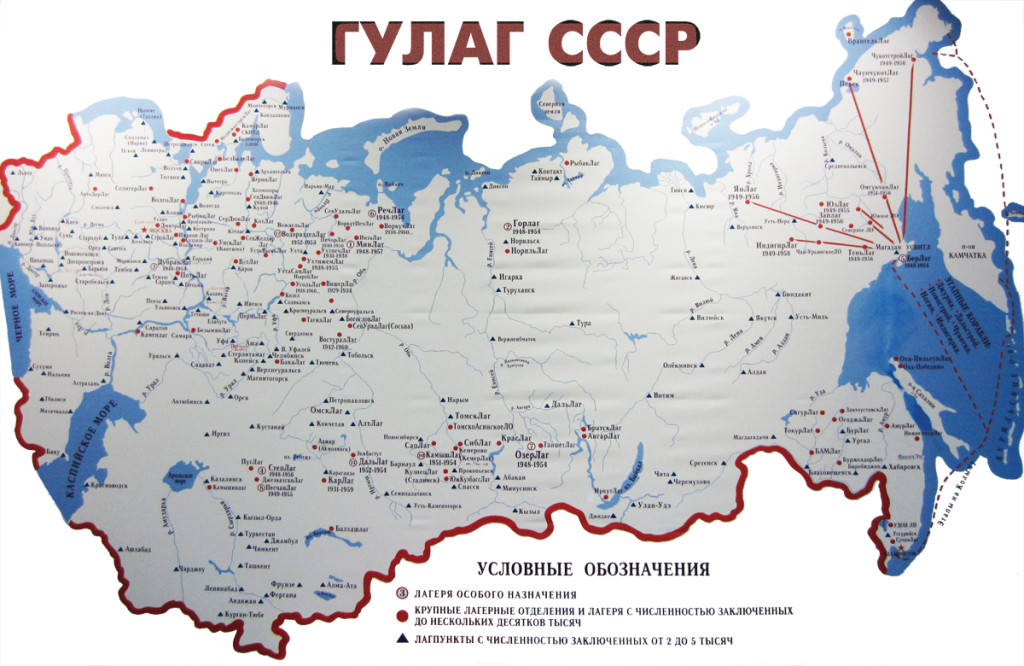
Tetsuro were talking about the so called professional criminals, urki or/and blatnye. Alexandr Solzhenytsin describes them in his book, The Gulag Archipelago, as folloews: “the tatooed cheats were merely the rear ends of the bluecaps (Gulag officials)” and Yevgenia Ginzburg describes them as “beyond bounds of humanity.” Steven A. Barnes describes them in his book Death And Redemption like this: “These professional criminals tattooed their bodies as to show they were part of an elaborate Gulag criminal subculture, that the Soviets couldn´t destroy. They played cards, sang, listened to stories and swore. Their language was notories for their vulgarity”.
Tetsuro continues:
“All new arrivals were standing up. We weren’t even allowed to go to the toilet. We just did our needs in a big barrell and that is why it stank everywhere in these camps of urin and pooh. So, I was standing in the door and the criminals were sitting on the bunks. They saw my clothes and belongings which I brought from home and wanted to take them away from me, but I didn´t give it to them. They called me over and told me to come and sit down. Which I did. They showed me where to sit and when I sat down, they stole my hat. And then they stole the rest of my belongings. I ended up naked.”
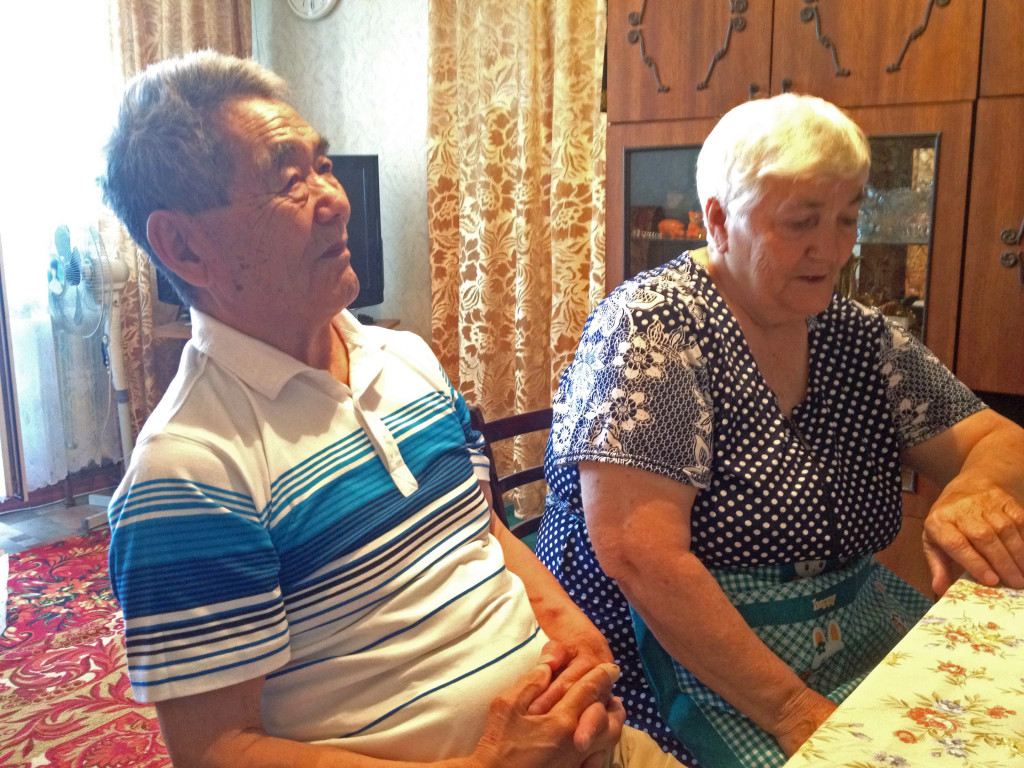
At this stage, there was pain all over him. I felt very tense.
“After an hour or so the guards allowed us to go for a walk and go to the toilet. But I couldn’t, because I was naked. The guards saw this and brought me a short heavy coat, like a jacket and another guard gave me a pair of huge felt boots, valenki. I went outside, but I was naked under the coat, no clothes at all, so I was freezing. I was so cold I couldn´t walk or move. I ahd been given clothes and boots nobody else wanted.”
“In the evening the camp authorities brought us all together in a big group and ordered us to work. A camp commander examined us firts and divided us into groups. I was picked for one group made up of 15 people and which group one ended up in was decided upon whether you had winter clothes or not. So the commander examined us breifly and I was sent to the group who was considered to have winter clothes. My felt boots were cut short and I wasextremely cold.”
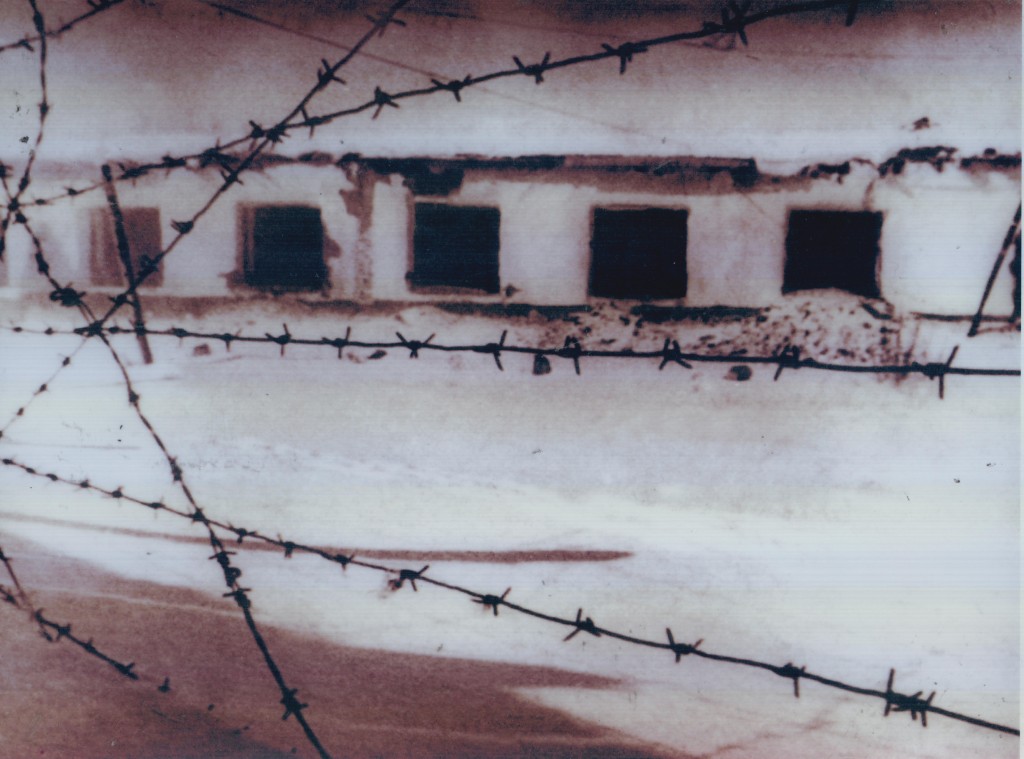
“We were first sent to unload coal at one of those train wagons which are opened underneath, which I didn´t know then. I was freezing cold, but like everyone else I tried to get inside the train as quick as possible and I started to work a piece of coal with my shovel, when suddenly the floor collapsed and all the coal went down the hole. It took me by surprise and I was sucked down, but managed to save myself with the shovel and held on to the floor and grabbed the wall, were I sttod up until all the coal was gone. I took off my felt boots, because they were full of coal dust, so there I was, barefoot with snow everywhere and I was badly freezing. I wrapped my trousers around my feet and went back to the barrack walking like that. But I was forced out to work again immediately and the commander brought me some torn and ragged clothes and said I could choose anything that fit me.”
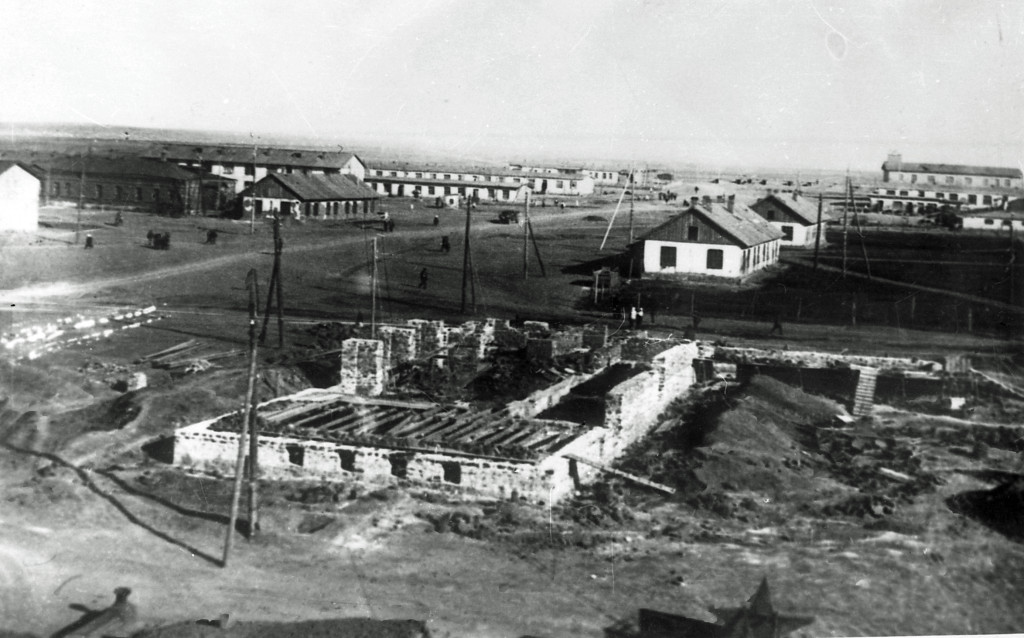
“Four people slept on one wooden bunk – two up and two below” he continued but suddenly stopped and put his head in his hands briefly: “I have a headache. Don’t worry, when I get upset I always get a headache. I was imprisoned in Spassk. Have you been to Spassk?”
We nodded. Spassk is located on the open steppe, taunted by what seems like an eternal wind and the main road south passes just by a relatively new memorial grave yard on the left and the old camp, or what is left of it, to the right. I had been there 3 times and it was an important reminder of the past. Spassk used to be a sub-division to KARLAG, a POW camp and after the war, it was part of the dreaded special camp called Steplag. It was said that this was the place were a prisoner was sent to die, the last station of life. For this reason, there was also a graveyard near the ruins of the former camp.
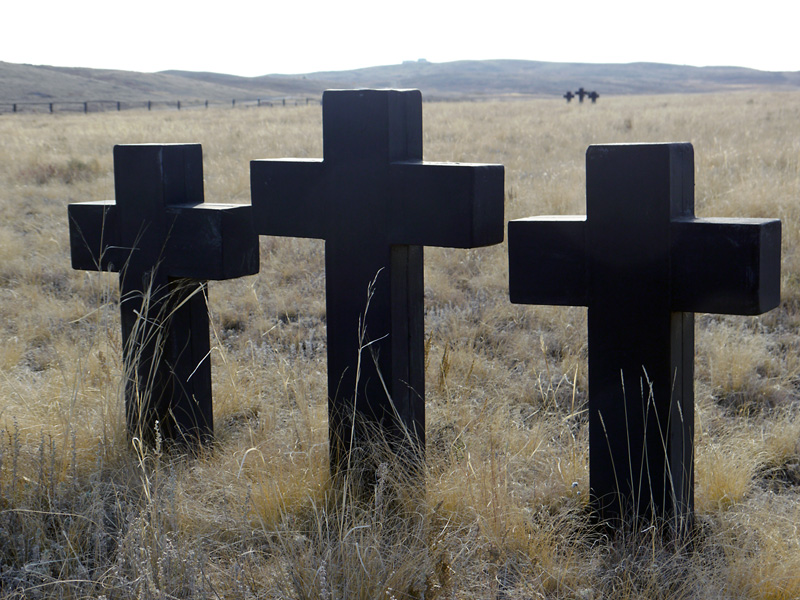
“Today there is nothing left at Spassk of the camp; everything was destroyed” , Tetsuro continues slowly, “The prisoners came from all nations but I didn’t see any Americans. There were Germans, Korean and a few Japanese. Well, we weren’t allowed to talk. If the camp authorities didn’t like you, you could get more years in prison for no other reason. They didn’t care about us. We were all there sentenced on article 58. We were all political prisoners. The Russians thought we were traitors of the motherland.”
Tetsuro suddenly stops. Twice he says the same:
“I was sent to prison in 1948…Yes, and I was released from prison after Stalin’s death.”
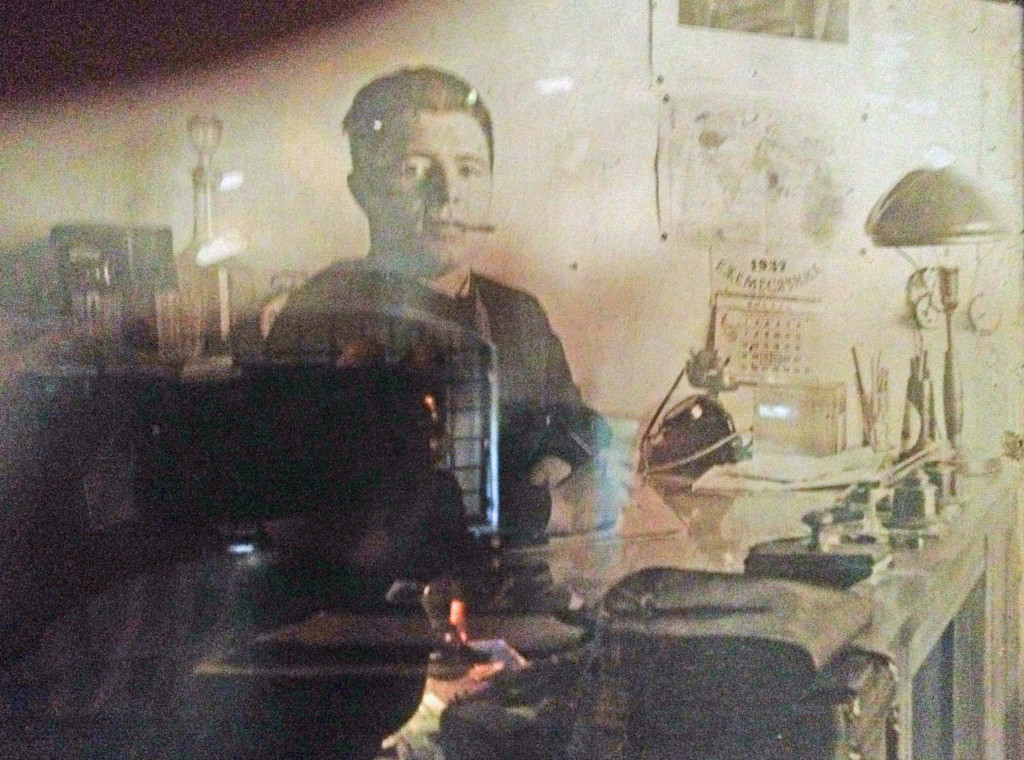
I can only imagine the pain he is going through. We all feel the tension and the intense pain he feels inside having to recount his extremely unfair and horrible experiences caused by a system of plain evil. I think this iss the exact moment I will get rid of the last thoughts that maybe I have had as regards to why so many people I met along the Kolyma still liked Josef Stalin. At that point I knew that they just had no idea and lived in complete ignorance.
“After Stalin’s death….Stalin died in 1953” , Tetsuro continues: “…I was given amnesty 1954. I was free. But where was I? I was along way from home. I was told to write a document about the place where I wished to live in Karaganda, but I didn’t have any relatives here, so I asked the authorities to allow me to move home to Japan. I didn´t note down any other place, but in truth, they didn’t give any indication of such a possibility and only took my application. Since that moment nobody cared at all what happened to me.”
“You said that it was forbidden to talk to somebody, did that apply to all camps in the former Soviet Union or only in Spassk?” we asked.
“It was the law in every camp for us who were sentenced under article 58 and the camp authorities divided us as far away as possible from our countrymen and friends to make it impossible for us to talk to each other. Such was the policy under Stalin.”
An often forgotten reality, I find after reading about this sad part of history, is the fact that many accounts of former Gulag prisoners stops after their release or the death of Stalin. And their story just have a brief summary of what happened to them afterwards. Standing next to Tetsuro filming makes me aware that the suffering didn´t end with being free. At least not during the suspicious driven Soviet regime.
Tetsuro:
“When I was released, the authorities put me in the first category, as a person suffering from starvation and hard work. I was then sent to an ore mine in the town of Rudny near Dhezkazgan. We worked stone and copper there. I worked there for three month but was so thin and weak, because I didn´t get enough food to eat. We just got 600 grams of bread and a bowl of porridge per day. If you worked hard, you could get more food but I was too weak and skinny. But, everyone who survived Spassk, were considered invalids. Most were to ill and couldn´t work anymore. But, foodwise, I was better off in the Spassk camp, they gave us more food there.”
It was really hard to ask any questions at this moment. We were all in emotional pain and I just felt like crying. It seemed like this part of his experiences were the hardest to recount.
“I had nowhere to go when I came to Aktas. It was impossible to find a job because I didn’t have a passport. I was given only temporary papers and I walked around every part of the town, because at this time transport didn´t exist. I had nowehere to sleep. I didn’t have any money, I didn´t have anything and I slept on the street and I didn’t have food to eat. Miners worked in three shifts and they ate at a canteen and they were going there at 12 a.m each day and I was watching them and I couldn´t sleep because I was so hungry. At first they drove me away, because they were annoyed I was dirty, but after some time, they left me some food on the table. So I used to move fast into the canteen, open my jacket and stuff all food there. At times I scavenged food on the street.”
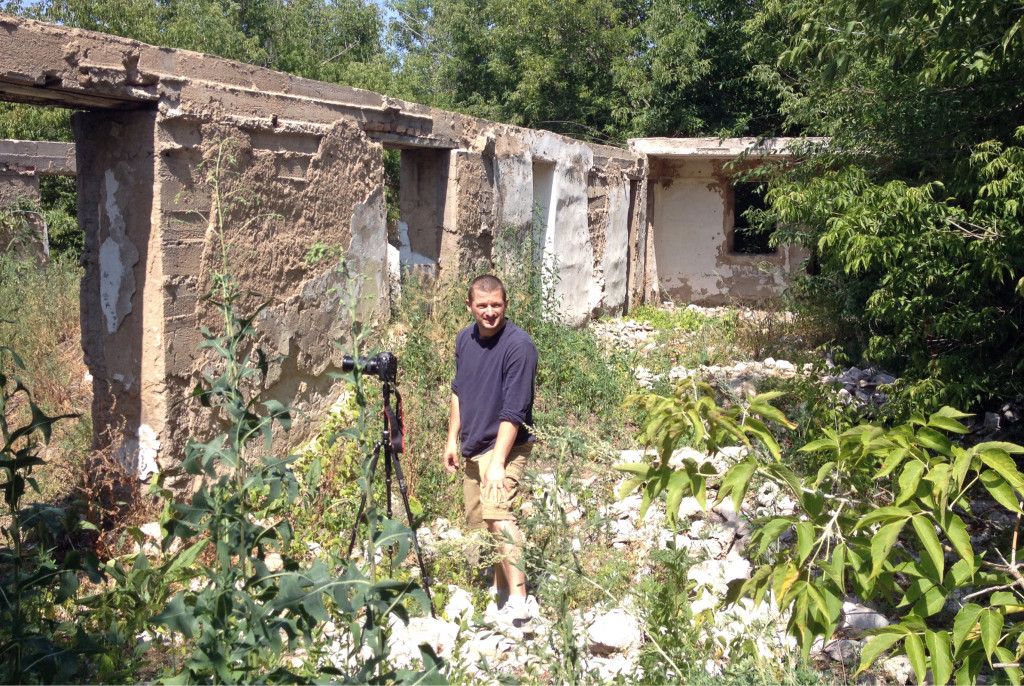
“I was incredibly hungry and badly needed to earn some money, so that’s why I walked around Karaganda looking for factories or a place where I could get work. I didn’t care what kind of job I did. Anything was fine. Most of the times, I found a job where I unloaded wagons with cement, a job nobody wanted to do, because of all the dirt and dust. It penetrated everything, even my nose. Luckily, after some time, due to the lack of welders in the mines, I was helped by a foreman who helped me to study welding and I passed all tests and I worked as a welder until my retirement.”
“I read in an article that you have been offered by the Japanese government to move back? Is this true?” I asked.
“Yes, I went to Japan the first time in 1994. My brother sent me money with some people who came here and that’s how I made it to Japan for the first time. I went there every two years, but I am old, so my daughter came with me in the beginning and later my wife. And after 2011 we decided to move there and we lived in Japan for two years. Unfortunately the weather was not good, we lived near the sea and we caught continous colds and had running noses too often. It was too wet for us. So we decided to return to Kazakhstan, which is dry and our daughter had looked after everything, so it was easy to return.”
“Tell them you had an operation” his wife says.
“Yes, I had an operation in Japan. The ministry paid for everything. But now everything is fine. And I’ve told you everything there is to say.”
Tetsuro and his wife had a big book where they had collected things written about Tetsuro and photos he had collected. He showed us photos of thin, skinny and starving prisoners from Spassk. He also showed us where the Japanese POW and prisoners were buried.
“I wasn´t the only Japanese prisoner in Spassk. There were 30 of us and we met in Vladivostok and was transferred together to Kazakhstan. But I am the only one left today, the last one left 1996. Most Japanese could return when Stalin died, but I wasn´t on any lists because I was released before Stalin died. So they all went home and I was left here all by myself. I wrote to the Japanese Embassy in Moscow and never heard back. I am sure my letters never reached the Embassy.”
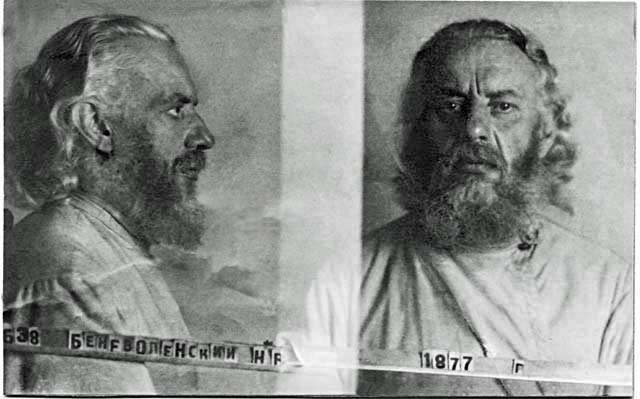
“I worked in a laundry in Spassk” ,Tetsuro suddenly added to his story: “All people who suffered from starvation were brought to Spassk and I washed a commanders clothes.”
“Did you believe in the system?” we asked.
“Of course I believed in it” he answered: “It’s forbidden to steal and kill. God sees everything and I have believed that from my childhood. There were many moments when somebody were ill or died and in these moments we always remembered God. I could talk to the commander and this helped me a lot, because we weren’t allowed to talk to any prisoners. We were afraid during the Stalin time.”
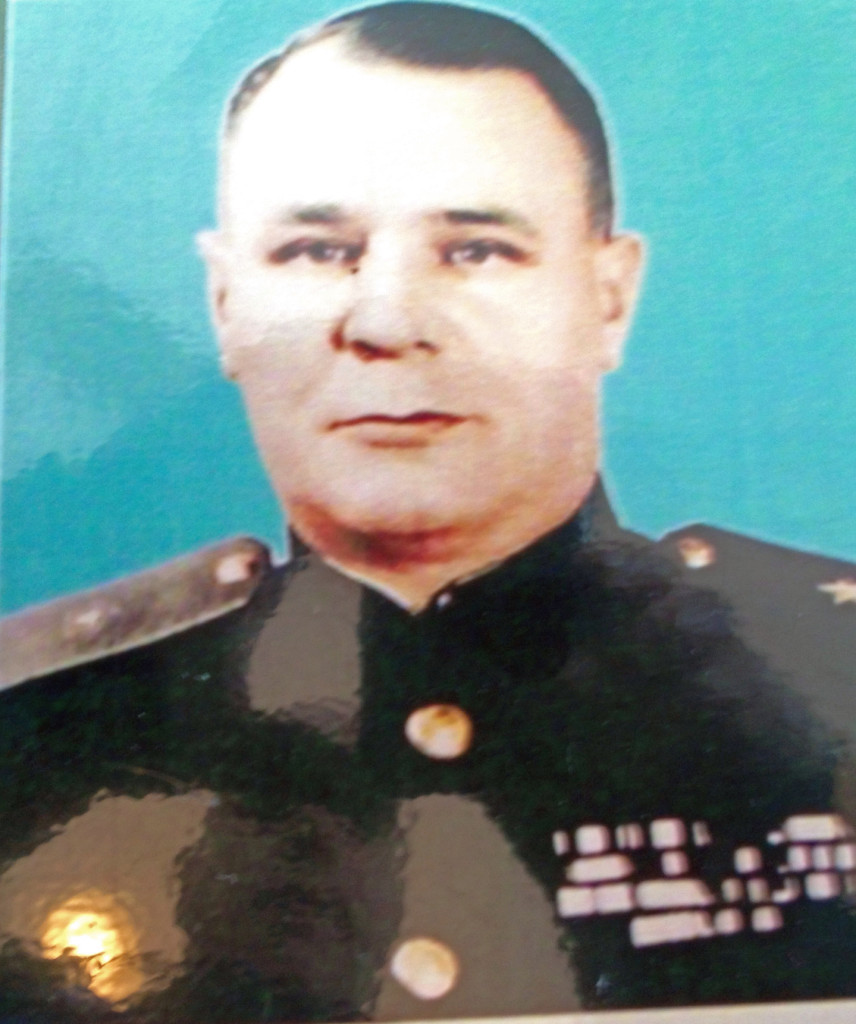
“What do you remember more?”
“It was long time ago and most of things are forgotten. Many Germans used to live here in Karaganda, they came from the Volga region where they had been deported from. Many of them have left Kazakhstan today, but there are still many here. And my biggest memory is that I was always hungry and I wanted more to eat. We didn´t have enough food in these times. I also suffered starvation and couldn´t work. I became an invalid so I was sent to Spassk.”
“What do you think you survived where so many others persished?” Ken Kamler ask through our translator Yulia.
“I was young, but couldn’t speak Russian. And if you end up in a situation like this, you need to bear it. I thought about good things, about a good future and how I really wanted to stay alive.”
“Do the neighbours know about your husband and his life?” I ask his wife.
“Of course they know. They know and respect him. Many cars and people arrive to see him. They know. He has also told them about this and we all understand him. And he told me about everything when we met. It was a tough time, hunger and war, but we got married and have lived together for 33 years. But our youth is gone and ruined, but today we are used to each other and this is the reason we still live together.”
As normal, once the inerview was over, we came across this enormous generosity of these people and felt their warmth and kindness in a way which is almost impossible to understand considering what they have gone through. We were all stunned by their kindness, humanity and generosity to strangers digging around in their lives. This interview taught me personally a lot. Whatever problem I have gone through in life, it could be much worse. So from now on, never look back at those moments, but cherish life.
*Read the rest of the articles here!

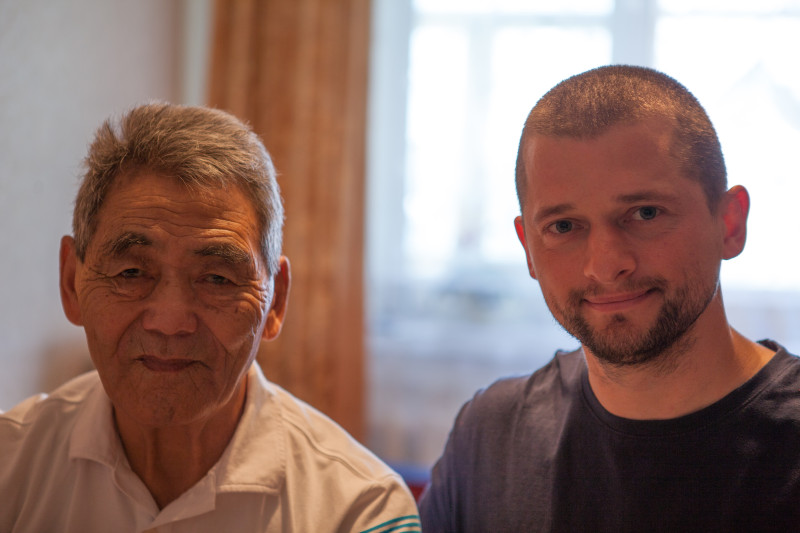
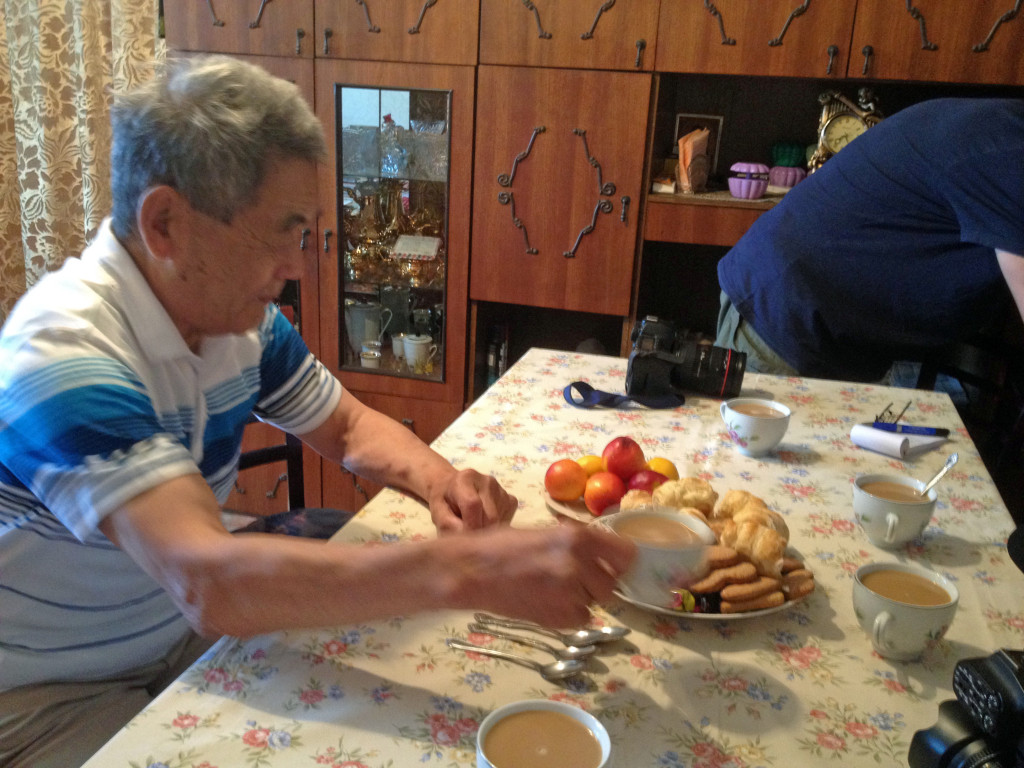
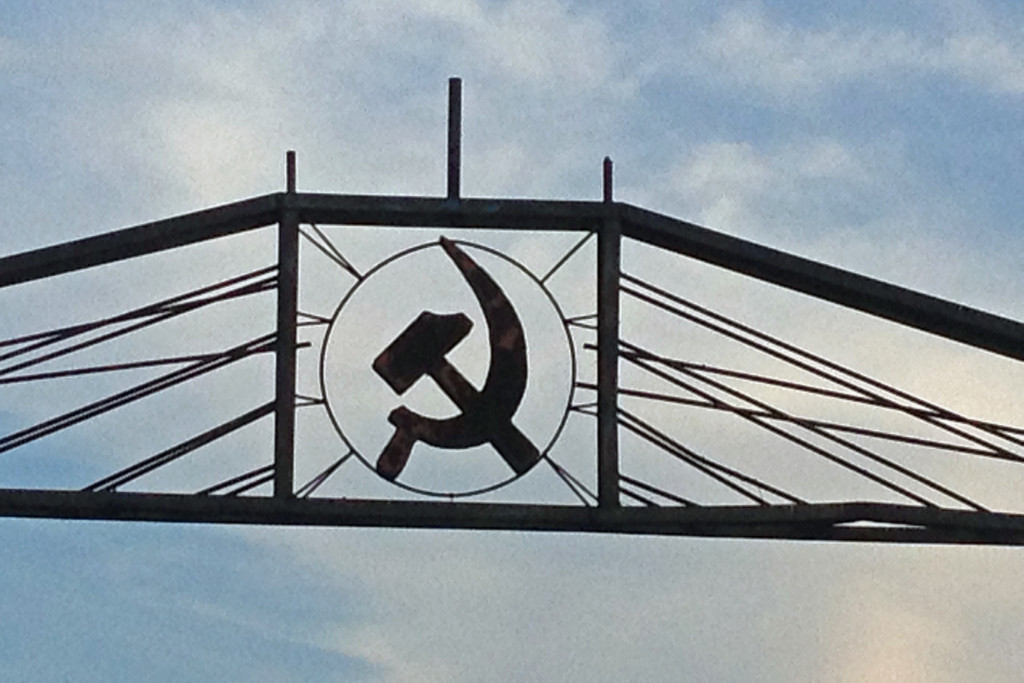

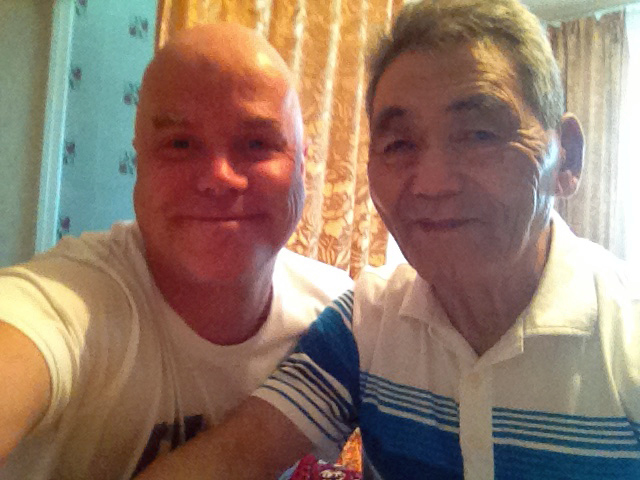
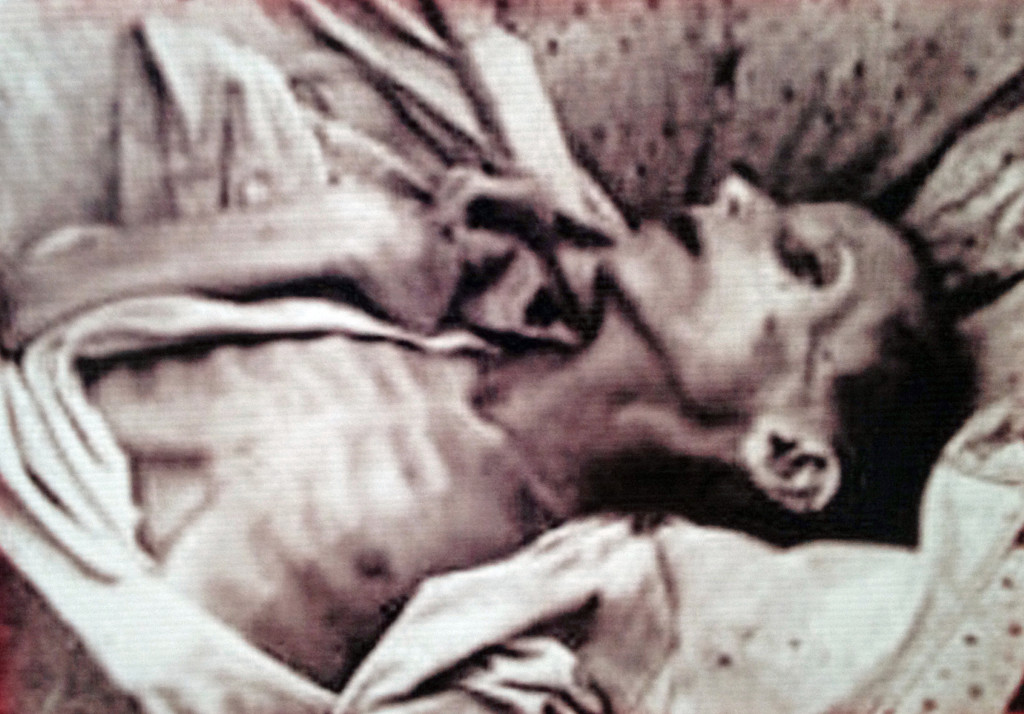
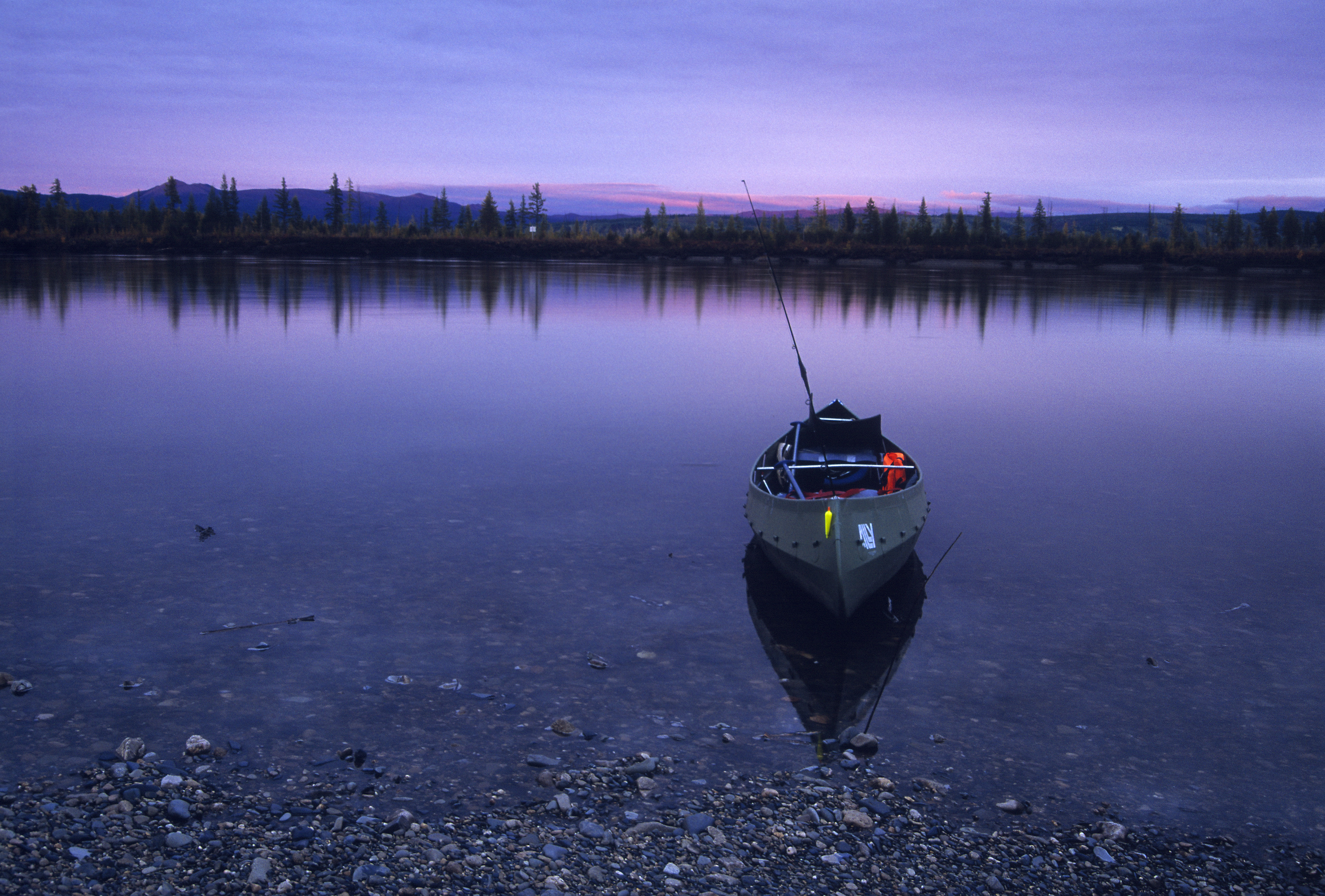
Good article, Mikael. And a good reminder that travel can bring us not only to wild and exciting places but more importantly into the lives of others whose experiences are so different than our own.